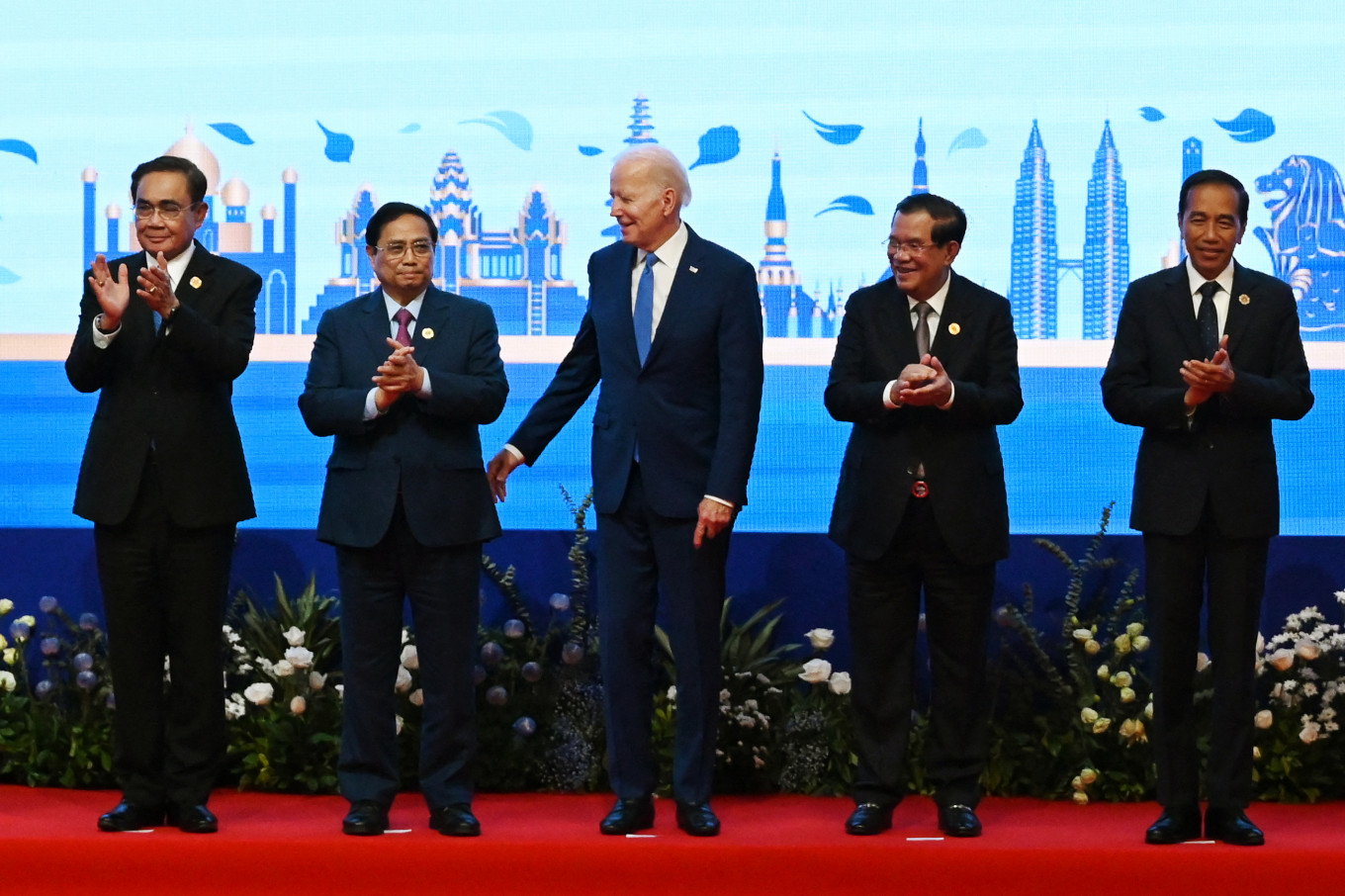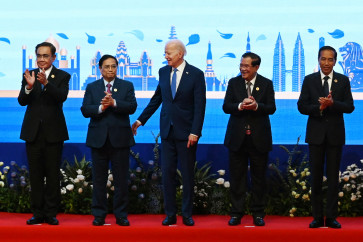Popular Reads
Top Results
Can't find what you're looking for?
View all search resultsPopular Reads
Top Results
Can't find what you're looking for?
View all search resultsDoes ASEAN matter to the US? Does the US matter to ASEAN?
Even as ASEAN states become more dependent economically on China, this has not stopped them from pursuing closer defense and security cooperation with the US.
Change text size
Gift Premium Articles
to Anyone
 Thai Prime Minister (from left) Prayut Chan-O-Cha, Vietnamese Prime Minister Pham Minh Chinh, United States President Joe Biden, Cambodian Prime Minister Hun Sen and Indonesian President Joko Widodo pose for pictures during the ASEAN-US Summit as part of the 40th and 41st ASEAN Summits in Phnom Penh on Nov. 12, 2022. (AFP/Tang Chhin Sothy)
Thai Prime Minister (from left) Prayut Chan-O-Cha, Vietnamese Prime Minister Pham Minh Chinh, United States President Joe Biden, Cambodian Prime Minister Hun Sen and Indonesian President Joko Widodo pose for pictures during the ASEAN-US Summit as part of the 40th and 41st ASEAN Summits in Phnom Penh on Nov. 12, 2022. (AFP/Tang Chhin Sothy)

United States President Joe Biden’s absence from the ASEAN Summit in Jakarta next week speaks volumes about how the current US administration sees Southeast Asia in its overall Indo-Pacific strategy. ASEAN matters little, if at all, enough for Biden to skip the annual gathering, even though he will be in the neighborhood around that time.
Host Indonesia has made “ASEAN Matters: Epicentrum of Growth” the tagline of its chairmanship of the group this year and this will culminate with a series of summits on Sep. 5-7, bringing together not only leaders of the 10 member states, but also of major powers including China, Japan, Korea, Australia and India.
Biden will be a conspicuous no-show. The White House last week confirmed that Biden will not be attending the ASEAN Summit in Jakarta, but he will be going to the Group of 20 summit in New Delhi on Sept. 9-10. There is an earlier report that he planned to visit Vietnam as part of this Asian tour but this has not been confirmed. Vice President Kamala Harris will represent Biden in Jakarta.
Biden’s absence is also an indication that Washington is not too pleased with ASEAN, or some of its members anyway, for not being fully on board with his Indo-Pacific strategy that seeks to contain China’s power in the region and globally.
Given its strategic geographical location, straddling the Indian and Pacific oceans, Southeast Asia is an important link in Biden’s strategy, and given ASEAN’s lukewarm response, also its weakest.
Japan, South Korea, Australia and India are fully on board through some alliance arrangements. Some, but not all ASEAN states are already allies of the US. But ASEAN as a group is not aligned either with the US, or with China for that matter. This has irked Washington, and Biden’s decision to skip the ASEAN Summit could be taken as a sign of this displeasure.
ASEAN leaders have repeatedly said they should not be forced to choose sides. Living in the neighborhood, ASEAN countries have had to do a careful balancing act as the Sino-US rivalry intensifies.

















